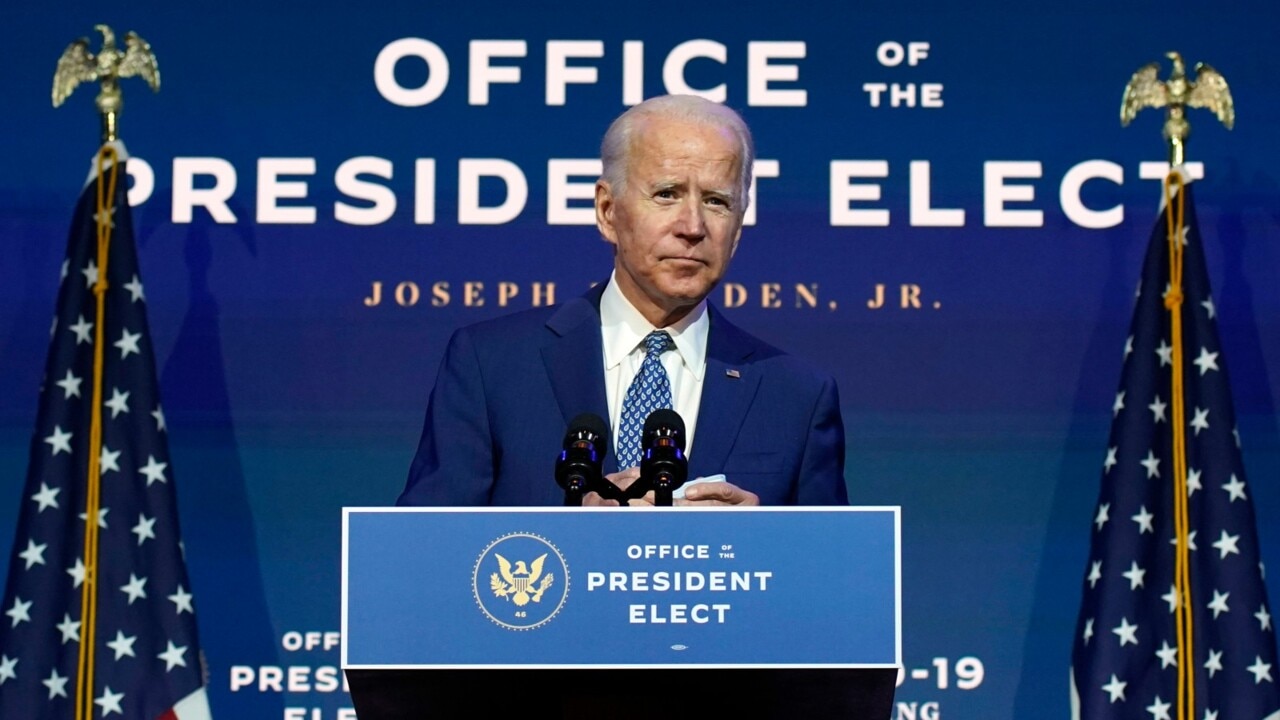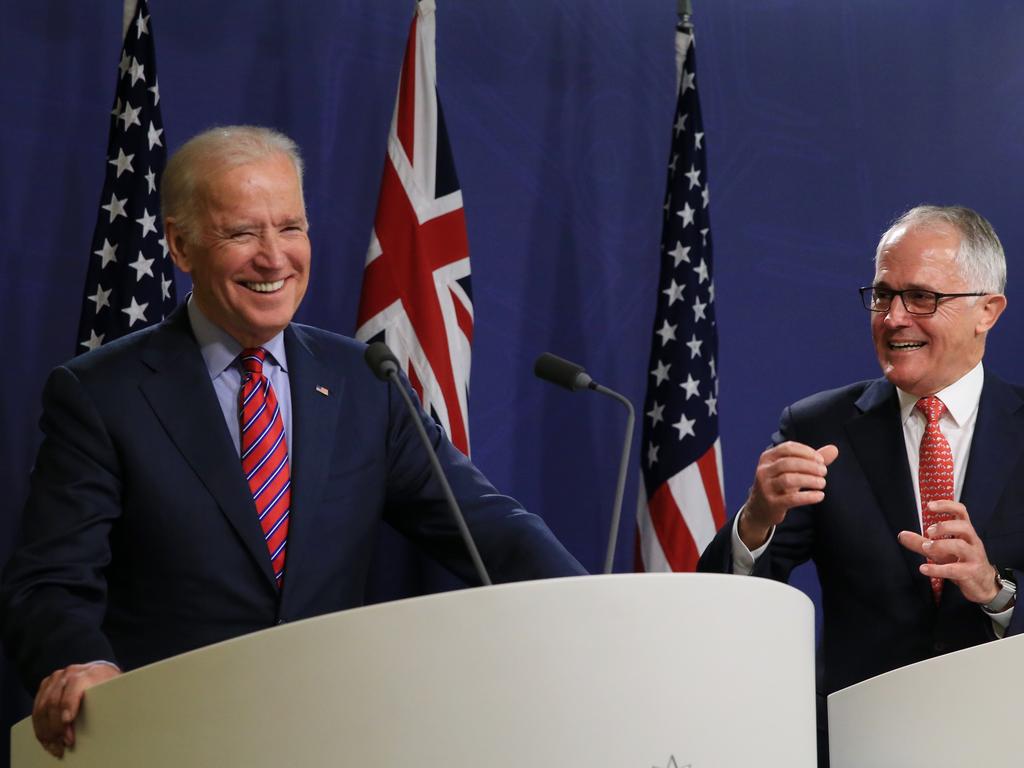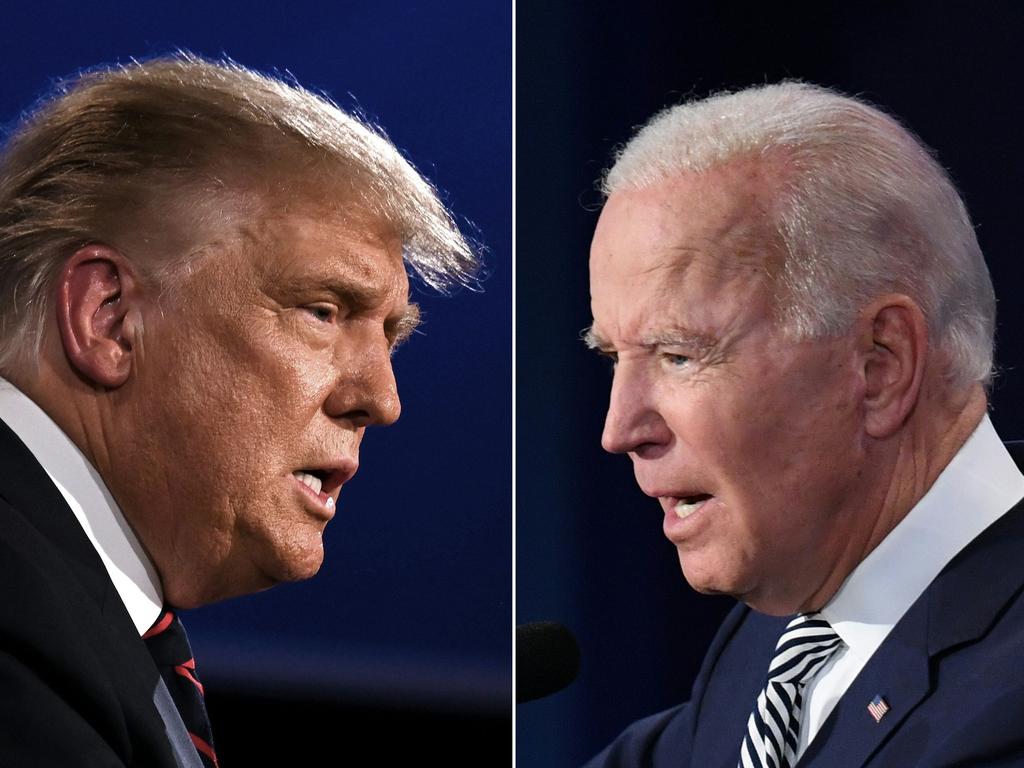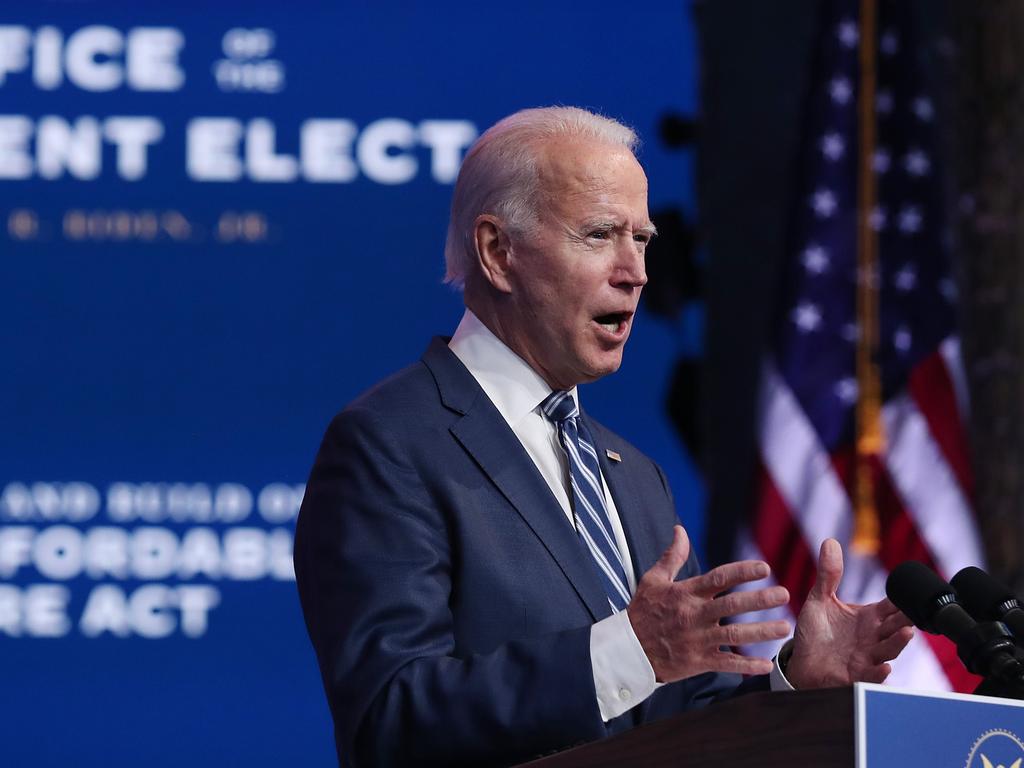
As ever with matters of climate politics, there will be vast amounts of disinformation, dishonesty, misrepresentation, confusion and pure moonshine.
First, the most extravagant parts of the Democrats’ Green New Deal will never happen. Congress won’t pass it. A Republican Senate will never legislate measures that destroy the gas industry, or US jobs. Even if Republicans lose the two run-off races in January, the Senate will then be 50/50, with Kamala Harris having a casting vote. It’s impossible to imagine such a Senate passing sweeping green legislation. So Biden will operate through limited presidential executive orders, and through rhetoric and symbolism, which is where the potential trouble for Morrison could arise.
The other part of Morrison’s dilemma is that his government has a reasonable story to tell, but with two equal and opposite rhetorical wings. Australia is making a fully proportionate effort in reducing greenhouse gas emissions. We will meet our Paris target.

At the same time, the government has to make the case, pointed in the opposite direction rhetorically, to its own backbench and the wider community that it is not unnecessarily harming the economy with useless climate penalties that won’t help the planet but will hurt Australia.
It’s always difficult to prosecute a case that involves balancing opposite inclinations.
According to the government’s figures, between 2005 and 2018 Australia reduced its total greenhouse gas emissions by 14 per cent. This is a bigger decrease than the OECD average. Canada and New Zealand, by comparison, had no meaningful reduction at all. Because of our continued population growth, our per capita decrease in that time was 32 per cent. Japan’s total decrease in that period was 8 per cent, and the US 10 per cent. So on any measure, Australia’s effort is fully proportionate.
Between 2005 and 2016, China’s greenhouse gas emissions rose by 169 per cent. China is by a vast distance the biggest emitter on the planet. In the same period, India’s emissions soared by 179 per cent and Indonesia’s emissions by 117 per cent.
Emissions are declining in almost every developed country. But they are no longer the main game. If the planet really is going to fry because of greenhouse gas emissions, these will come from the developing world. The planet, after all, cannot distinguish between an approved emission from China and a frowned-on emission from Australia. So new technology is truly the key.
It’s worth approaching these issues from first principles. A carbon tax, as Biden has said he supports, or an emissions trading system, works by making it expensive to emit a greenhouse gas. What are the consequences of that? The theory is that producers find the cheapest, low-carbon ways to produce. But what are the real-world effects? Either the production becomes much more expensive, or it stops altogether.

In an ideal world, it moves to a less-carbon-intense technology. But more often, it simply moves to China or some other part of Asia with less stringent environmental regulations.
In this way, clever Western policy makers can get the perfect trifecta of bad outcomes: you make yourself poorer, you make your strategic competitor richer, and you actually damage the planet because the activity is undertaken in a country with dirtier production. The desire to avoid this trifecta of failure does not indicate that you are a science-denying, knuckle-dragging monster from the antediluvian swampland of child-eating planet destroyers. It may just indicate you prefer dealing in the real world rather than the fantasy world.
Consider all these commitments countries are making to zero-net emissions by 2050. New Zealand has made such a commitment but, to protect its agricultural industry, it has exempted methane, which is about half its greenhouse gas emissions. China has made a rhetorical commitment to zero-net emissions by 2060. David Attenborough praised Beijing for this. When dear old Thomas Keneally was lambasting Tony Abbott at the last election, he claimed, bizarrely, that China had dealt with its climate change challenge.
So Beijing has brilliantly succeeded in the rhetorical politics of climate change by making meaningless pronouncements. Any government anywhere promising to do something in 2060, a vastly greater distance in time from today than the end of World War II was from the start of World War I, is just having a lend of us. Beijing’s national carbon market has been a rhetorical and political tool for China, and indeed for Green activists to bludgeon Canberra with, for a decade now, but it’s had no impact at all on a single tonne of carbon, and is not likely to.

Take even our good friends the Brits. Boris Johnson in private was formerly a terrific sceptic about the climate religion, but London has pledged to zero carbon emissions by 2050. Yet it hasn’t told us how this will happen and it has also said it will, if necessary, buy carbon credits internationally to make up any shortfall. In other words, the notional commitment to net-zero is such baloney that it depends on a situation continuing in much of Asia and Africa and other parts of the world in which carbon emissions can rise indefinitely. Countries such as Britain, and presumably Australia, can purchase carbon credits from these countries. And these carbon credits are payments for them to forego notional emissions that they would otherwise undertake.
Are you getting the feeling yet that this is a fantasy built on a nonsense with foundations of pure flim-flam?
The whole concept of net zero is extremely problematic. Almost any economic activity produces emissions. Therefore net zero requires a huge industry of negative emissions technologies, which, beyond planting trees, do not exist at the moment. Joel Fitzgibbon is surely right that all of Labor’s policies on climate change so far have achieved nothing, and his equal assessment that if the world is to get to net-zero, the progress won’t be linear. This is because it depends on technologies that don’t yet exist.
Under the eccentricities of carbon budget designs, emissions from bushfires don’t count in your national carbon budget. So one way for Australia to get to net zero would be to have big bushfires every year so we can then claim credits for replanting the trees that just burnt down. Morrison should just hold steady.







The election of Joe Biden as US president will produce political challenges for the Morrison government over climate change. Biden will race ahead rhetorically, even if he actually doesn’t do that much. The challenge to Canberra will be rhetorical, not substantial, but could be tricky.